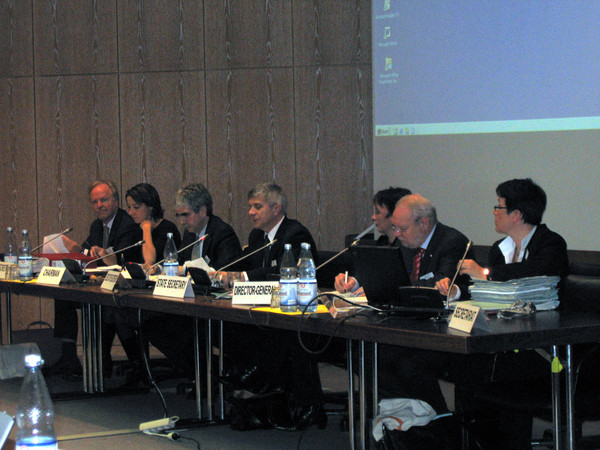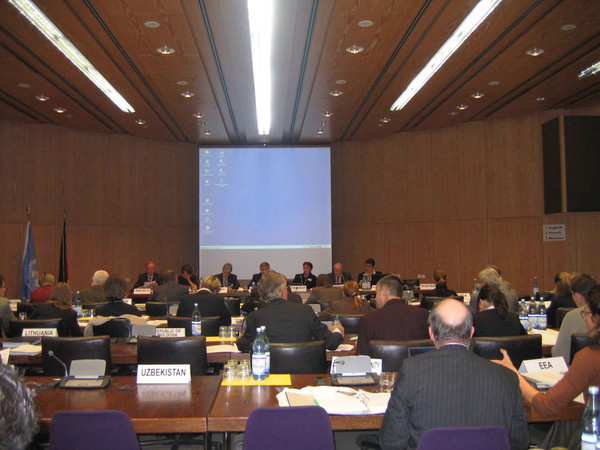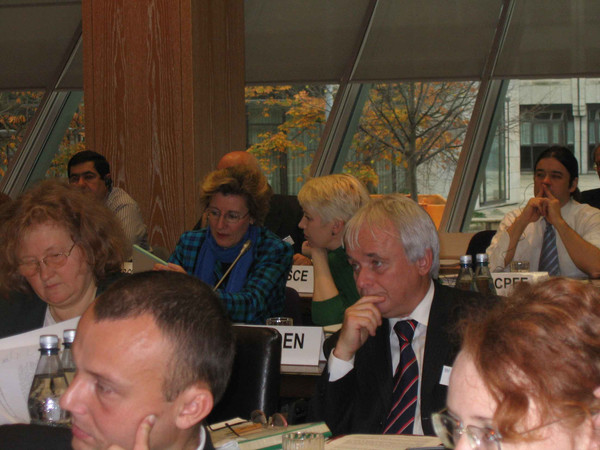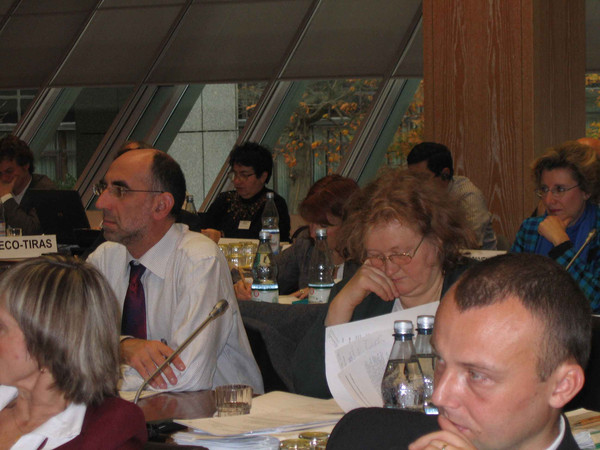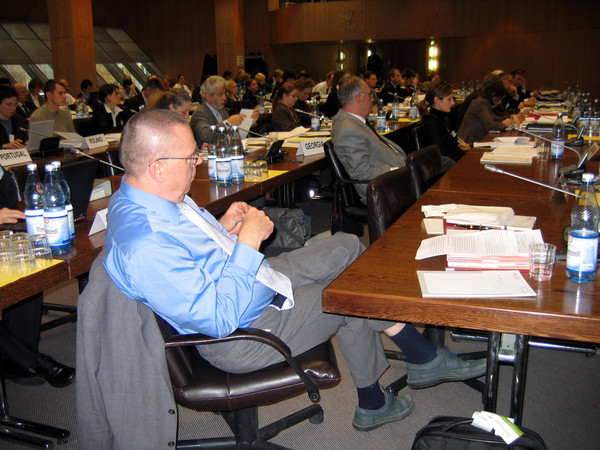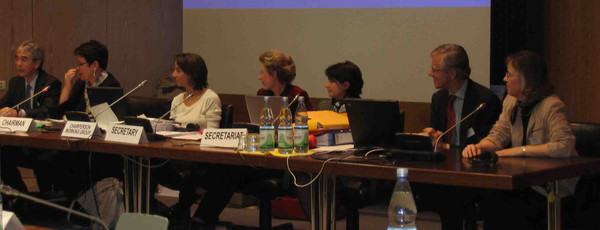HIGHLIGHTS
Parties adopted the Strategies for Monitoring and Assessment of Transboundary Rivers, Lakes and Groundwaters which are based on the guidelines already developed by the Working Group on Monitoring and Assessment, and on the experience with their implementation in pilot projects. The Meeting also agreed to develop new pilot projects in South-Eastern Europe (SEE) and in Eastern Europe, Caucasus and Central Asia (EECCA).
A Preliminary assessment of transboundary rivers in Eastern Europe, Caucasus and Central Asia (EECCA) and of selected lakes in the UNECE region was presented. The Parties reaffirmed that the assessment is an important tool to evaluate compliance with the Convention and progress achieved to protect and sustainably manage transboundary waters. As agreed at the previous meeting in 2003, the complete assessment of the status of transboundary rivers, lakes and groundwaters in the UNECE Region will be submitted at the Ministerial Conference “Environment for Europe” in Belgrade, Serbia, in October 2007.
Parties, concerned with impact of natural disasters caused by extreme weather events, also adopted new Model provisions on transboundary flood management. The Model Provisions set out riparian countries’ obligations that could be included in legal instruments on transboundary waters or on flood management. By adopting these provisions, riparian countries commit to exchange information, to cooperate in setting up warning and alarm systems and to develop a long-term flood-management strategy.
Also, the Parties to the Water Convention jointly with the Parties to the Industrial Accidents Convention adopted the Safety Guidelines and Good Practices for Pipelines. The Safety guidelines are intended to raise awareness and share experience and good practices among the competent authorities, pipeline operators and the public. As many pipelines cross borders between two or more countries, harmonization across the region was increasingly needed.
Parties, together with other countries and observers, participated in animated discussions on a new policy instrument: the Recommendations on the payments for ecosystem services in integrated water resources management. The Recommendations indicate measures to internalise costs and benefits of the services provided by water related ecosystems. The Recommendations will assist decision makers in making economically efficient, socially equitable and environmentally sustainable decisions. The Parties adopted the Recommendations and decided to develop pilot projects to test their application. Several countries will take the lead in pioneering their implementation.
Parties also decided to focus their future joint work on water and climate change and to develop a Strategy for the UNECE region on Water and Climate Adaptation. The Strategy will address possible impacts of climate change on flood and drought occurrences, health related aspects as well as practical ways to cope with the transboundary impacts through adaptation.
Another innovative decision of the Meeting was the involvement of the Convention and its secretariat in the development of National Policy Dialogues in EECCA countries in the framework of the EU Water Initiative. The National Policy Dialogues will assist countries to develop integrated water management plans, analyze water reform needs, identify priorities and define action plans to attain the agreed targets through a participatory process. The first policy dialogue will be launched in Moldova.
OPENING SPEECHES
Germany
UNECE
Austria
Azerbaijan
Belarus
Bosnia and Herzegovina
Croatia
Finland
Hungary
Switzerland
The Former Yugoslav Republic of Macedonia
The Netherlands
EECCA RECs
International Sava River Basin Commission
WHO-EURO
LIST OF PARTICIPANTS PDF
